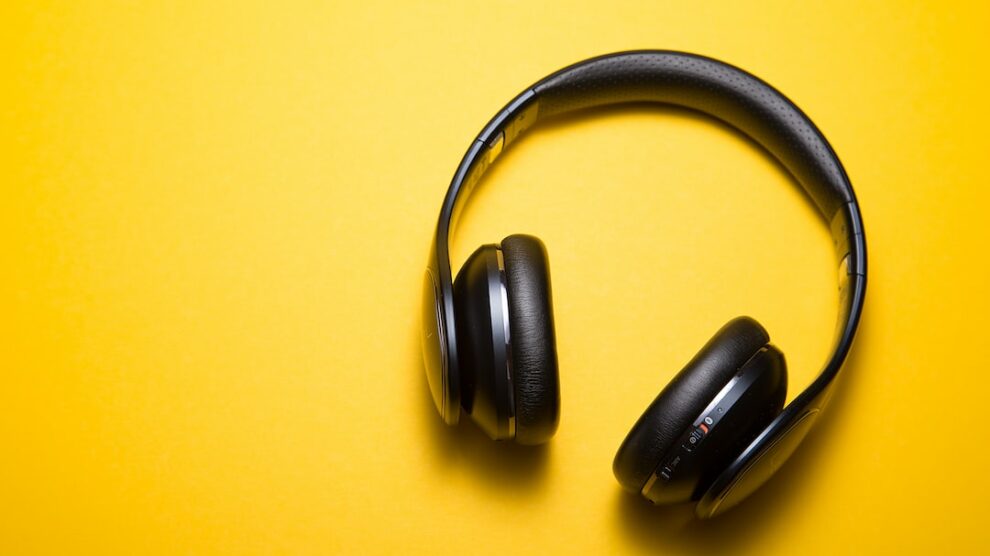Podcasting has become increasingly popular in recent years, with millions of people tuning in to their favorite shows on a regular basis. But what exactly is podcasting? In simple terms, podcasting is the creation and distribution of audio content that can be downloaded or streamed online. It allows individuals to create their own radio-style shows on a wide range of topics, from news and entertainment to education and personal development.
The history of podcasting dates back to the early 2000s when it first emerged as a way for individuals to share audio content online. The term “podcast” is a combination of “iPod” (a popular portable media player at the time) and “broadcast.” However, podcasting has evolved far beyond its initial association with Apple’s iPod and can now be accessed on various devices, including smartphones, tablets, and computers.
So why should bloggers care about podcasting? Well, there are several benefits to incorporating podcasting into your blogging strategy. Firstly, it allows you to expand your reach and audience. By offering audio content in addition to written blog posts, you can attract a new segment of listeners who prefer consuming information through audio. This can help you reach a wider audience and increase your blog’s visibility.
Secondly, podcasting can help you build credibility and authority in your niche. By sharing your expertise and knowledge through audio content, you can establish yourself as an expert in your field. This can lead to increased trust from your audience and open up opportunities for collaborations, speaking engagements, and other professional opportunities.
Lastly, podcasting allows you to create a deeper connection with your audience. Unlike written blog posts, podcasts offer a more personal and intimate experience for listeners. They can hear your voice, tone, and personality, which helps to build a stronger connection and foster a sense of community. This can lead to increased engagement, loyalty, and support from your audience.
Key Takeaways
- Podcasting is a powerful tool for building your brand and connecting with your audience.
- Podcasting can help boost your blogging brand by providing a new platform for your content.
- Choosing the right topic and format for your podcast is crucial to its success.
- You’ll need some basic equipment and software to get started with podcasting.
- Recording and editing your podcast can be challenging, but there are tips and tricks to make it easier.
How Podcasting Can Help Boost Your Blogging Brand
Expanding your reach and audience is one of the key benefits of podcasting for bloggers. By offering audio content in addition to written blog posts, you can attract a new segment of listeners who prefer consuming information through audio. This can help you reach a wider audience and increase your blog’s visibility.
Podcasting also allows you to build credibility and authority in your niche. By sharing your expertise and knowledge through audio content, you can establish yourself as an expert in your field. This can lead to increased trust from your audience and open up opportunities for collaborations, speaking engagements, and other professional opportunities.
In addition to expanding your reach and building credibility, podcasting can help you create a deeper connection with your audience. Unlike written blog posts, podcasts offer a more personal and intimate experience for listeners. They can hear your voice, tone, and personality, which helps to build a stronger connection and foster a sense of community. This can lead to increased engagement, loyalty, and support from your audience.
Choosing the Right Topic and Format for Your Podcast
Choosing the right topic and format for your podcast is crucial to its success. It’s important to identify your niche and target audience before diving into podcasting. This will help you create content that resonates with your ideal listeners and sets you apart from other podcasts in your niche.
When deciding on the format of your podcast, there are several options to consider. You can choose to do solo episodes where you share your thoughts and expertise on a specific topic. This format allows you to showcase your knowledge and establish yourself as an authority in your niche.
Another popular format is the interview format, where you invite guests onto your show to share their insights and experiences. This format allows you to tap into the expertise of others and provide valuable content for your audience.
You can also consider co-hosting a podcast with someone else in your niche. This can bring a fresh perspective and dynamic to your show, as well as help you share the workload and responsibilities of podcasting.
Once you have chosen the format, it’s time to brainstorm episode ideas. Think about the topics that are most relevant and interesting to your target audience. Consider what questions they may have or what problems they are trying to solve. This will help you create content that is valuable and engaging for your listeners.
Equipment and Software You Need to Start Podcasting
| Equipment/Software | Description |
|---|---|
| Microphone | A device used to capture audio. A good quality microphone is essential for producing a high-quality podcast. |
| Headphones | Used to monitor audio while recording. Helps to ensure that the audio quality is good and that there are no issues with background noise. |
| Audio Interface | A device that connects the microphone to the computer. It helps to improve the quality of the audio signal and provides additional control over the recording process. |
| Recording Software | Used to record and edit audio. There are many different options available, ranging from free to paid software. |
| Hosting Platform | A platform used to host and distribute the podcast. There are many different options available, ranging from free to paid platforms. |
| Website | A website is not essential, but it can be helpful for promoting the podcast and providing additional information to listeners. |
To start podcasting, you will need some basic equipment and software. While it’s possible to start with minimal equipment, investing in good quality equipment can greatly improve the sound quality of your podcast.
The most important piece of equipment you will need is a microphone. A good quality microphone will ensure that your voice is clear and crisp, making it easier for your listeners to understand and enjoy your content. There are many options available, ranging from USB microphones that plug directly into your computer to XLR microphones that require an audio interface.
In addition to a microphone, you will also need a pair of headphones. Headphones are essential for monitoring the audio while recording and editing your podcast. They allow you to hear any background noise or technical issues that may need to be addressed.
When it comes to recording software, there are many options available, both free and paid. Audacity is a popular free option that offers basic recording and editing capabilities. If you’re looking for more advanced features, Adobe Audition and GarageBand are popular choices.
Once you have recorded your podcast, you will need editing tools to enhance the audio and remove any mistakes or unwanted noise. Audacity, Adobe Audition, and GarageBand all offer editing capabilities, allowing you to trim, cut, and adjust the audio as needed.
Finally, you will need a hosting platform to publish and distribute your podcast. There are many hosting platforms available, such as Libsyn, Podbean, and Anchor. These platforms provide the necessary infrastructure to store and deliver your podcast episodes to various podcast directories and platforms.
Recording and Editing Your Podcast: Tips and Tricks
Recording and editing your podcast can seem daunting, especially if you’re new to audio production. However, with some practice and the right techniques, you can create high-quality podcasts that engage and captivate your audience.
Setting up your recording space is the first step in ensuring good audio quality. Choose a quiet room with minimal background noise, such as a home office or a spare bedroom. Use soundproofing materials, such as foam panels or curtains, to reduce echo and external noise.
When it comes to recording high-quality audio, there are several tips to keep in mind. Firstly, speak clearly and at a consistent volume. This will make it easier for your listeners to understand and follow along with your content. Secondly, use a pop filter to reduce plosive sounds (such as “p” and “b” sounds) that can cause distortion in the audio. Finally, make sure to position the microphone correctly and at the right distance from your mouth to achieve optimal sound quality.
Editing techniques can greatly enhance the overall quality of your podcast. Start by removing any mistakes or unwanted noise, such as background hum or coughs. Use the editing software’s tools to trim, cut, and adjust the audio as needed. You can also add music or sound effects to enhance the listening experience and create a more professional feel.
Creating Compelling Content for Your Podcast

Creating compelling content is key to attracting and retaining listeners for your podcast. There are several strategies you can use to make your podcast episodes engaging and memorable.
Crafting a strong intro and outro is essential for hooking your listeners from the start and leaving a lasting impression. Use an attention-grabbing opening line or question to pique their curiosity and make them want to keep listening. Similarly, end each episode with a call to action or a teaser for the next episode to encourage your listeners to come back for more.
Developing engaging episode topics and titles is another important aspect of creating compelling content. Choose topics that are relevant and interesting to your target audience. Consider what questions they may have or what problems they are trying to solve. Use catchy and descriptive titles that clearly communicate the value and benefits of listening to your episode.
Incorporating storytelling and humor can also make your podcast more engaging and enjoyable for your listeners. Share personal anecdotes or stories that relate to the topic at hand. Use humor to lighten the mood and make your content more relatable and entertaining.
Promoting Your Podcast: Strategies for Building Your Audience
Promoting your podcast is crucial for building your audience and growing your podcasting brand. There are several strategies you can use to effectively promote your podcast and attract new listeners.
Leveraging social media platforms is one of the most effective ways to promote your podcast. Create dedicated social media accounts for your podcast and share regular updates, episode releases, and behind-the-scenes content. Engage with your audience by responding to comments, asking for feedback, and encouraging them to share your episodes with their networks.
Collaborating with other podcasters and bloggers in your niche can also help you reach a wider audience. Consider guesting on other podcasts or inviting guests onto your show. This cross-promotion can introduce you to new listeners who may be interested in your content.
Utilizing email marketing and SEO can also help you promote your podcast. Build an email list of subscribers who are interested in your content and send regular updates about new episodes, special offers, or exclusive content. Optimize your podcast’s website and episode descriptions with relevant keywords to improve its visibility in search engine results.
Monetizing Your Podcast: Turning Your Passion into Profit
Monetizing your podcast is a great way to turn your passion into profit. There are several strategies you can use to generate income from your podcast.
Sponsorships and advertising are one of the most common ways to monetize a podcast. Once you have built a sizable audience, you can approach companies and brands that align with your niche and target audience. Offer them the opportunity to sponsor your episodes or advertise their products or services during your show.
Affiliate marketing is another popular monetization strategy for podcasts. Sign up for affiliate programs that are relevant to your niche and promote their products or services on your show. Include unique affiliate links in your episode descriptions or show notes, and earn a commission for every sale that is made through your referral.
Creating premium content and merchandise is another way to monetize your podcast. Offer exclusive bonus episodes, behind-the-scenes content, or access to a private community for a monthly subscription fee. You can also create merchandise, such as t-shirts, mugs, or stickers, featuring your podcast’s logo or catchphrase and sell them to your audience.
Measuring Success: Metrics to Track for Your Podcast
Measuring the success of your podcast is important for understanding how well it is performing and identifying areas for improvement. There are several metrics you can track to gauge the success of your podcast.
Downloads and listens are the most basic metrics to track for your podcast. This will give you an idea of how many people are downloading or streaming your episodes. Keep an eye on these numbers over time to see if there are any trends or patterns in your listenership.
Reviews and ratings are another important metric to track. Encourage your listeners to leave reviews and ratings on platforms like Apple Podcasts or Spotify. Positive reviews and high ratings can help attract new listeners and improve the visibility of your podcast.
Engagement and feedback from listeners are also valuable metrics to track. Pay attention to comments, emails, or social media interactions from your audience. This will give you insights into what they like or dislike about your podcast and help you make improvements.
Best Practices for Maintaining a Successful Podcast and Blogging Brand
Maintaining a successful podcast and blogging brand requires consistency, engagement, and continuous improvement. Here are some best practices to keep in mind:
Consistency in publishing and promoting is key to building a loyal audience. Set a regular schedule for releasing new episodes and stick to it. Promote your episodes consistently on social media and other channels to ensure maximum visibility.
Engaging with your audience and community is crucial for building a strong connection and fostering loyalty. Respond to comments, emails, or social media messages from your listeners. Ask for feedback and suggestions to show that you value their input.
Continuously improving and evolving your content and brand is essential for staying relevant and attracting new listeners. Keep an eye on industry trends and changes in your niche. Experiment with new formats, topics, or styles to keep your content fresh and exciting.
In conclusion, podcasting can be a powerful tool for bloggers to expand their reach, build credibility, and create a deeper connection with their audience. By choosing the right topic and format, investing in the right equipment and software, creating compelling content, promoting effectively, monetizing strategically, measuring success, and maintaining best practices, bloggers can leverage podcasting to boost their blogging brand and take their online presence to the next level.









Add Comment